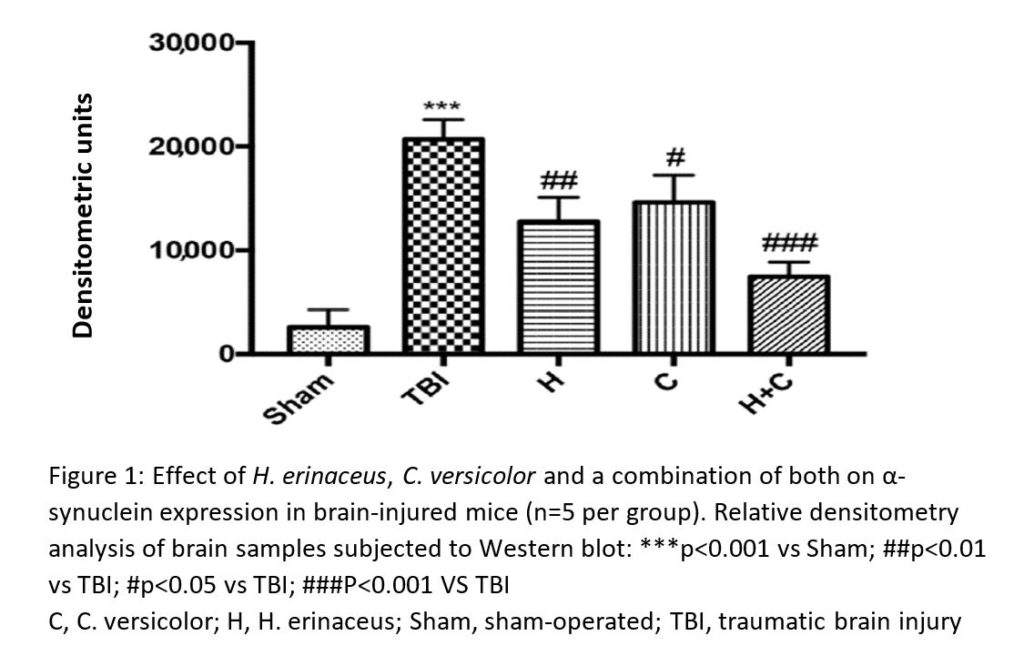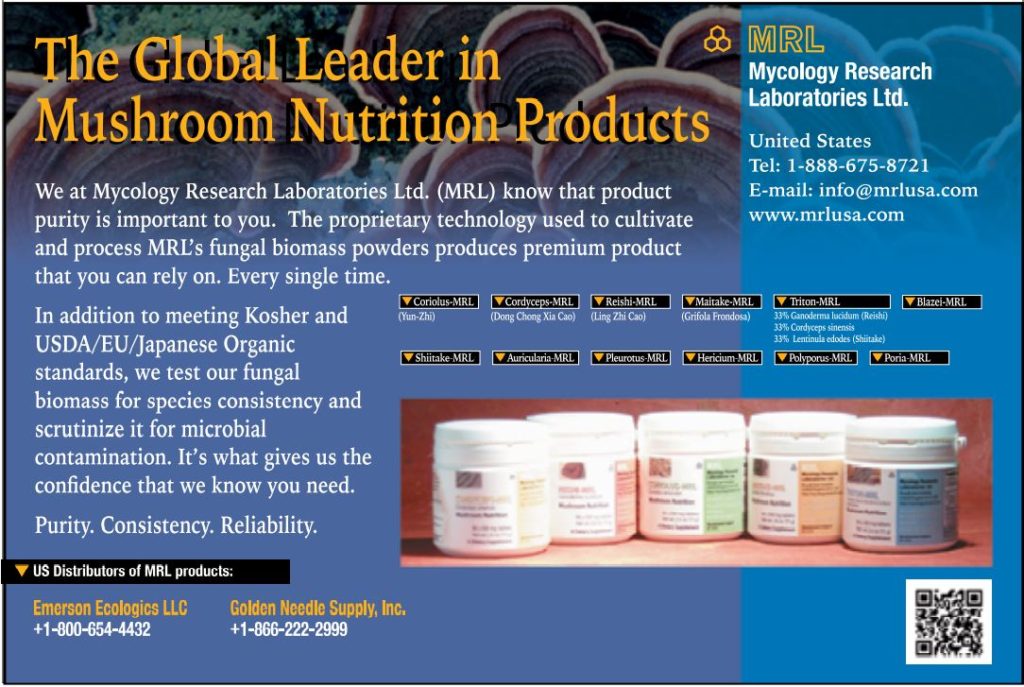A recently published paper has described how the inflammatory and oxidative responses to traumatic brain injury in mice were reduced using nutritional mushroom supplements.
The authors, working at the Universities of Messina and Catania in Italy, presented their latest research investigating the potential beneficial effects of Coriolus versicolor and Hericium erinaceus in preventing the development of brain pathologies similar to those found in Parkinson’s disease (Antioxidants 2021;10:898. https://doi.org/10.3390/antiox10060898).
They induced brain injury in the midbrain region of mice through controlled cortical impact, then compared the effects of daily treatment with oral mushroom supplements. At all time points after surgery (Days 1, 7, 14 and 30), untreated brain-injured mice exhibited anxiety-related behaviors and altered cognitive function (spatial learning and memory), but mushroom-treated mice were no different to mice who had not received a brain injury. Post-mortem histological analysis showed that treated mice had less injury-induced brain tissue damage and had been protected against neuronal cell loss in the midbrain. Inflammation in the midbrain was also reduced, indicated by significantly reduced expression of the inflammatory proteins glial fibrillary acidic protein (GFAP) and ionized calcium-binding adapter molecule 1 (IBa-1). Furthermore, the treated brain-injured mice exhibited a greater rise in antioxidant levels (Nrf2, HO-1, Hsp-70, γGCs and Trx) within the midbrain than untreated brain-injured mice, reflecting an enhanced protective antioxidant response; the same was found within the cortex, hippocampus, and cerebellum. As the protective response extended beyond the site of initial injury, this limited the spread of oxidative stress within the brain and the progression of neurodegenerative phenomena.
The authors showed that the inflammatory environment and oxidative imbalance following traumatic midbrain brain injury was coincident with accumulation of the protein α-synuclein and the death of dopaminergic neurons in this region (phenomena that are characteristic of Parkinson’s disease). They were able to demonstrate that mushroom treatment significantly suppressed these processes (see Figure 1 for data on α-nuclein).

brain-injured mice treated with mushroom supplement.
Although both mushroom species worked well individually in reducing and preventing the spread of inflammatory and oxidative changes within the injured brain, the combination was always more effective.
Professor Vittorio Calabrese, a senior author of the paper, said:
The finding of this study indicates that Hericium erinaceus and Coriolus versicolor can act on specific molecular mechanisms underlying the pathophysiology of chronic traumatic brain injury and Parkinson’s disease. Supplements containing these mushrooms represent a potential target of novel nutritional approaches relevant to the prevention of neurodegenerative processes associated with a brain injury.
Our discovery opens up the possibility of developing new neuroprotective treatment strategies that have a beneficial impact on brain-injured patients and, moreover, are able to prevent or slow the development of neurodegenerative conditions.
Publication
D’Amico R, Trovato Salinaro A, Fusco R, Cordaro M, Impellizzeri D, Scuto M, Ontario ML, Lo Dico G, Cuzzocrea S, Di Paola R, Siracusa R, Calabrese V. Hericium erinaceus and Coriolus versicolor modulate molecular and biochemical changes after traumatic brain injury. Antioxidants 2021;10:898. https://doi.org/10.3390/antiox10060898
Contacts
The Hericium erinaceus and Coriolus versicolor biomass used in the study was supplied by Mycology Research Laboratories Ltd. (Luton, United Kingdom). http://www.mycologyresearch.com/; www.mrlusa.com
Luton-based Mycology Research Laboratories Ltd. was founded in the United Kingdom in 1997 with a focus on developing mushroom-based nutrition products. Over the past 20 years, Mycology Research Laboratories has had several collaborations with hospitals and universities based in the Netherlands, United Kingdom, Italy, and Portugal.






